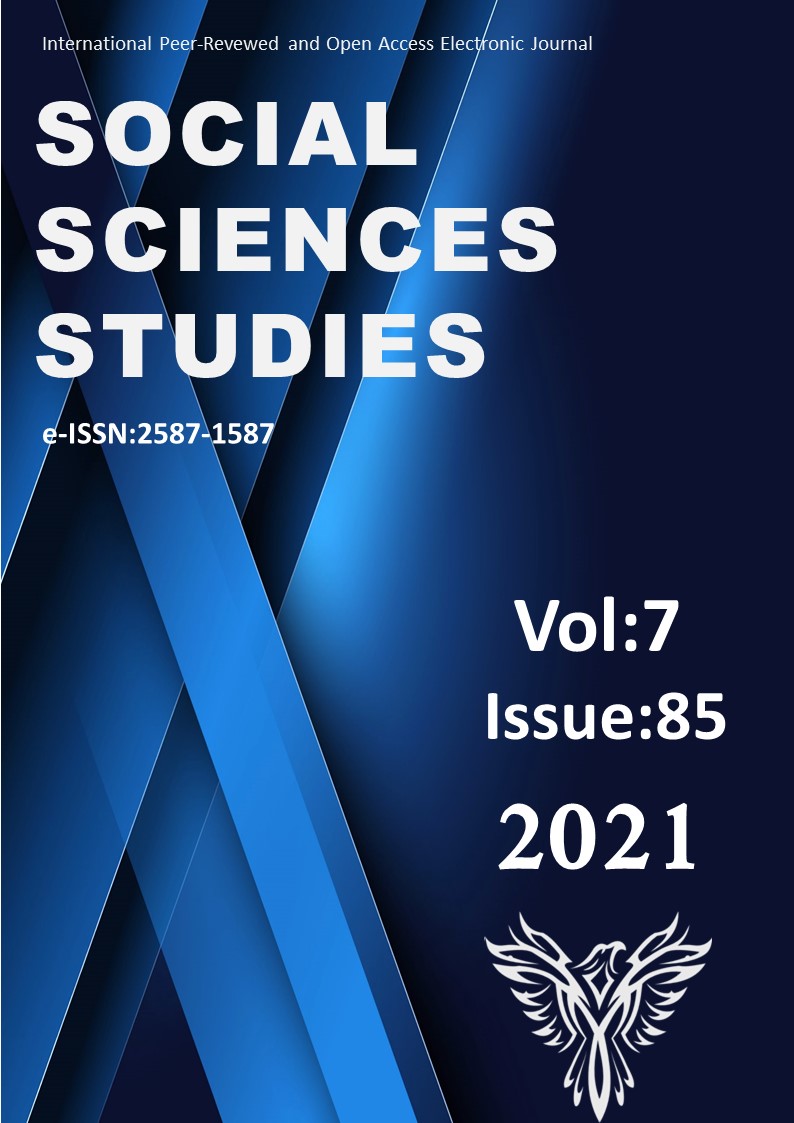Author :
Abstract
AB, üçüncü ülkelere yönelik dış politikasının önemli bir parçası olan insan hakları ve demokratikleşme ilkelerine vurgu yaparak, “insan hakları şartını” ön plana sürerek, bunu ortaklık anlaşmalarında şart koşmuştur. AB, son zamanlarda Doğu ile olan ilişkilerinde ticaret ilişkilerini geliştirmenin yanı sıra insan hakları ve demokrasiye vurgu yaparak ilişkileri geliştirmeyi amaçlamaktadır. Soğuk Savaş sürecinin bitmesiyle oluşan yeni düzende, AB’nin uluslararası siyaseti etkileyebilme kapasitesini açıklamak amacıyla, AB’nin normatif güç yapısı Manners tarafından dile getirilmiştir. Arap Baharıyla birlikte Suriye’de baş gösteren olaylara AB’nin yaklaşımı normatif değerler kapsamında çalışmada incelenmektedir. 2010 sonrası yaşanan göçler nedeniyle Birlik içerisinde yabancı düşmanlığının arttığı ve göç sorununa yönelik etkili bir mekanizma geliştiremediği görülmektedir. Arap coğrafyasında isyanların ve Suriye’deki sorunun ne olacağını kestiremeyen AB, normatif değerlerle yaklaşıp sürece taraf olmak yerine, izlemeyi tercih etmiştir. AB’nin uygulamalarına bakıldığı zaman, insan hakları ve demokrasi vurgusuyla etkili bir söylem geliştirmede başarılı olmadığı görülmektedir. Soruna güvenlik ekseninde yaklaşan AB’nin başarısından bahsetmek mümkün görünmemekte ve normatif güç olabilmesinin önündeki sınırlılıklarını göstermektedir.
Keywords
Abstract
The EU, emphasizing the principles of human rights and democratization, which is an important part of its foreign policy towards third countries, put the “human rights condition” in the foreground and stipulated this in the partnership agreements. The EU aims to improve relations with an emphasis on human rights and democracy as well as developing trade relations in its recent relations with the East and the South. After the end of the Cold War process, the normative power structure of the EU was expressed by Manners in order to explain the EU's capacity to influence international politics in the new order formed. The EU’s approach to the events that started in Syria with the Arab Spring is examined in the study within the scope of normative values. Due to the migrations after 2010, the Union has not been able to develop an effective mechanism for the increase in xenophobia and the migration problem. The EU, which could not predict what would happen to the uprisings in the Arab geography and the problem in Syria, preferred to follow the process instead of being a party to the process by approaching with normative values. When the EU’s practices have been examined, it is seen that it has not been successful in developing an effective discourse with an emphasis on human rights and democracy. The success of the EU, approaches the problem on the axis of security and shows the limitations of being a normative power, cannot be mentioned.





